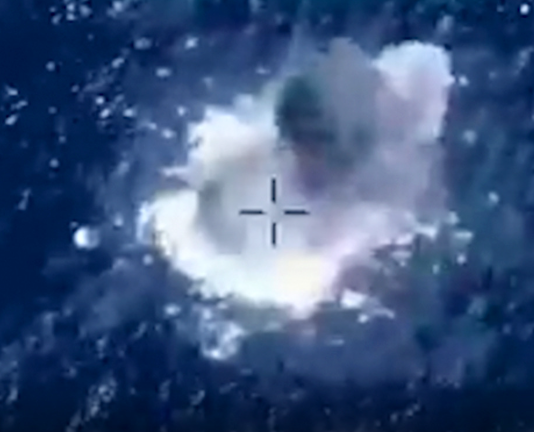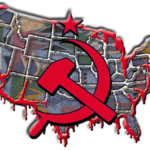By Douglas V. Gibbs
Drug abuse has a long history in the world, and in the United States. During the late 1800s drugs like morphine and laudanum were marketed as cure-all medications. During the dawn of the twentieth century the United States began taking a more punitive approach to drugs. First we saw the 1909 Smoking Opium Exclusion Act, and in 1914 the Harrison Act was passed targeting the distribution and production of cocaine. As alcohol prohibition was ending in the 1930s, concerns over marijuana began to rise, with Harry Anslinger, head of the Federal Bureau of Prohibition – later changed to the Federal Bureau of Narcotics – claiming it to be more dangerous than heroin. Anslinger was the first person to call the effort against drugs in the United States “warfare against drugs.”
By the 1960s, recreational drug use was on the rise. President Nixon considered the rise in drug use to be a major security issue. Under his administration, Congress passed the Controlled Substance Act which created five schedules to regulate drugs. June 17, 1971 Nixon officially declared War on Drugs, calling drug addiction a “national emergency,” and designating drug abuse to be “public enemy number one.” By 1973 the Nixon administration created the Drug Enforcement Agency (DEA).
In the 1980s the war on drugs fired up again with President Ronald Reagan signing the 1986 Anti-Drug Abuse Act. The new law granted $1.7 billion for law enforcement to fight the War on Drugs, and established greater mandatory minimum sentencing for drug offenders.
The War on Drugs escalated during the nineties, with President Bill Clinton signing the 1994 Crime Bill. As the strategies and funding increased, drug related crimes rose from 50,000 to 400,000 between 1980 and 1997. Since then, the number of people convicted for drug related crimes have risen 500%.
Someone once asked me what I thought about the War on Drugs, and I responded, “the drugs refuse to surrender.”
While I suppose going after drug use can be an important part of the equation, the reality is that whenever there is a demand for anything, there is also a supply. If the supply is cut off, the demand can be reduced. Yes, I get it, the drug world has this amazing ability to transform as needed. Another problem is that there is no constitutional authority for the federal government to make laws regarding drugs. From a purely original intent perspective, drugs are a state issue. Should the federal government have the authority to make law regarding drugs? That is a matter of debate, but if they are going to engage in the way that they are, there technically needs to be an amendment added to the Constitution to authorize federal enforcement.
President Donald Trump doesn’t see the drug problem as his predecessors did. He views the drug crisis in America as being a national security emergency. President Trump’s focus is not on drug use penalties, but instead he believes the way to handle it is to attack the source – and he views drugs coming across the border as being an attack against the American People. During his 2024 Presidential Campaign Trump vowed to take on the drug cartels, viewing them as no different than enemy combatants attacking America – but rather than sending armies across the border, their method of attack has been drugs and human trafficking. Once in the White House, President Trump took immediate action, moving heavy weapons to the border, using spy flights to collect data, sending reaper drones into Mexico, has sent the American military to Mexico to help train the Mexican military so that they can work together against the cartels, declaring cartels foreign terrorist organizations, and he has authorized strikes against drug cartels and their operations including at sea.
Trump signed a directive ordering the U.S. Military to start using force against Latin American drug cartels, and there has been over twenty strikes against sea-going craft bringing drugs into the United States.
A part of the reason for the strong effort by this administration is Fentanyl. The drug, more addictive and deadly than heroin, has been coming into this country from China in deadly amounts. China is the primary provider of illicit precursor chemicals, and to get it under control President Trump has designated drug cartels as foreign terrorist organizations. By doing so, the War on Drugs has shifted from what we’ve known it to be for a century to a national security issue and warfare against the suppliers before the drug gets into the United States in the first place.
Closing the borders has been an important part of this new strategy in the war against drugs. Trump has also gone after the main supplier, China, with a 20% tariff. Trump’s most controversial move in this new war on drugs, at least according to his opposition, has been the use of military force at sea to destroy vessels identified as transporting fentanyl or other narcotics.
Secretary of War Pete Hegseth has described recent military actions as “rooted in the fact that President Trump has a heart for all those families and all those Americans who’ve been affected by the drug trade…it’s personal for him. He’s met the families. He’s seen the communities.”
Hegseth, as has President Trump, states that the real war on drugs that is now being waged is “self-defense… defense of the American people. We have been poisoned, our kids have been poisoned, our communities have been poisoned, and we’ve allowed it to happen because for some reason we are not willing to look holistically or seriously at the problem…This is about America and America first.”
This war on drugs is more like the war on terror, says Hegseth. “These cartels, they terrorize, they extort, they rape, they kill. They are terrorists. So you designate them, which we have done, as foreign terrorist organizations. That puts them in the category of al-Qaeda or ISIS. Do we negotiate with al-Qaeda or ISIS? Do we treat them like civilians when they are delivering precursors of death? No, we don’t. So, we give them an option to get out of this business because America’s serious about it…nobody tracks, hunts, finds networks of international terrorists better than the United States of America. And so, to these narco-terrorists, if they think we’re not looking or we don’t know, we’ve just gotten started. Wait until we truly map every aspect of your web.”
The Democrats have challenged Trump’s use of force against drug cartels, calling his targeting to sea-going drug runners “illegal.” In response, Trump said, “What’s illegal are the drugs that were on the boat, and the drugs that are being sent into our country.” Amid a major military buildup in the Caribbean, it has been suggested that Trump plans to attack Venezuela, and may even be interested in regime change in that country. Trump has denied any plans of attacking Venezuela, much less plans of regime change. He has denounced Venezuela’s Marxist president Nicolas Maduro as “one of the largest narco-traffickers in the world,” and has announced a $50 million bounty for information leading to his arrest. In response, Venezuela has mobilized its army and civil militia.
While no formal lawsuits have been filed against President Trump for his use of military force at sea against alleged drug cartel vessels, legal experts and commentators have voiced concerns about the legality of the actions by the President. In each case, however, President Trump is within his constitutional authorities.
- Critics argue that Trump may not use military force without congressional approval because in Article I, Section 8 only Congress has the power to declare war. While it is true Congress has the authority to “declare” war, as Commander in Chief the President may wage war as he believes to be necessary in order to address national security issues. If Congress has a problem with his use of the military, they may use legislation to defund the activities.
- Critics argue that Trump overstepped his authority designating cartels as terrorist organizations because they argue it doesn’t meet the threshold for armed conflict under international law. The President of the United States is not subject to international law. He is subject to U.S. law and the U.S. Constitution. Groups like Venezuela’s Tren de Aragua do indeed exhibit the same markers as terrorist organizations, and Trump’s designation of them as “Foreign Terrorist Organizations” with the intent to use the designation to justify lethal force fits the standard used historically.
- Critics have raised alarms calling the attacks violations of international humanitarian law and maritime conventions. The President does not answer to international law, and if an invasion is en route he has the authority as Commander in Chief to stop that attack, be it a military invasion or an attack with any array of weapons that can include drugs that are designed to kill Americans.
- Critics accuse the Trump administration of lacking transparency and oversight regarding their war on the importation of drugs. Secrecy to ensure successful operations are carried out is necessary. While the Pentagon has not released detailed strike protocols or evidence supporting the targets’ cartel affiliations, evidence after the fact has each time confirmed that the targets were cartel affiliated and carrying massive amounts of drugs. Congress has received memos from the White House about the strikes, but no formal legislative rebuke or legal action has emerged.
In conclusion, yes, as a matter of national security, the President of the United States as Commander in Chief may use military forces to blow up boats from other countries carrying drugs, and other weapons that may be used against the American People, in the name of national security.
— Political Pistachio Conservative News and Commentary



